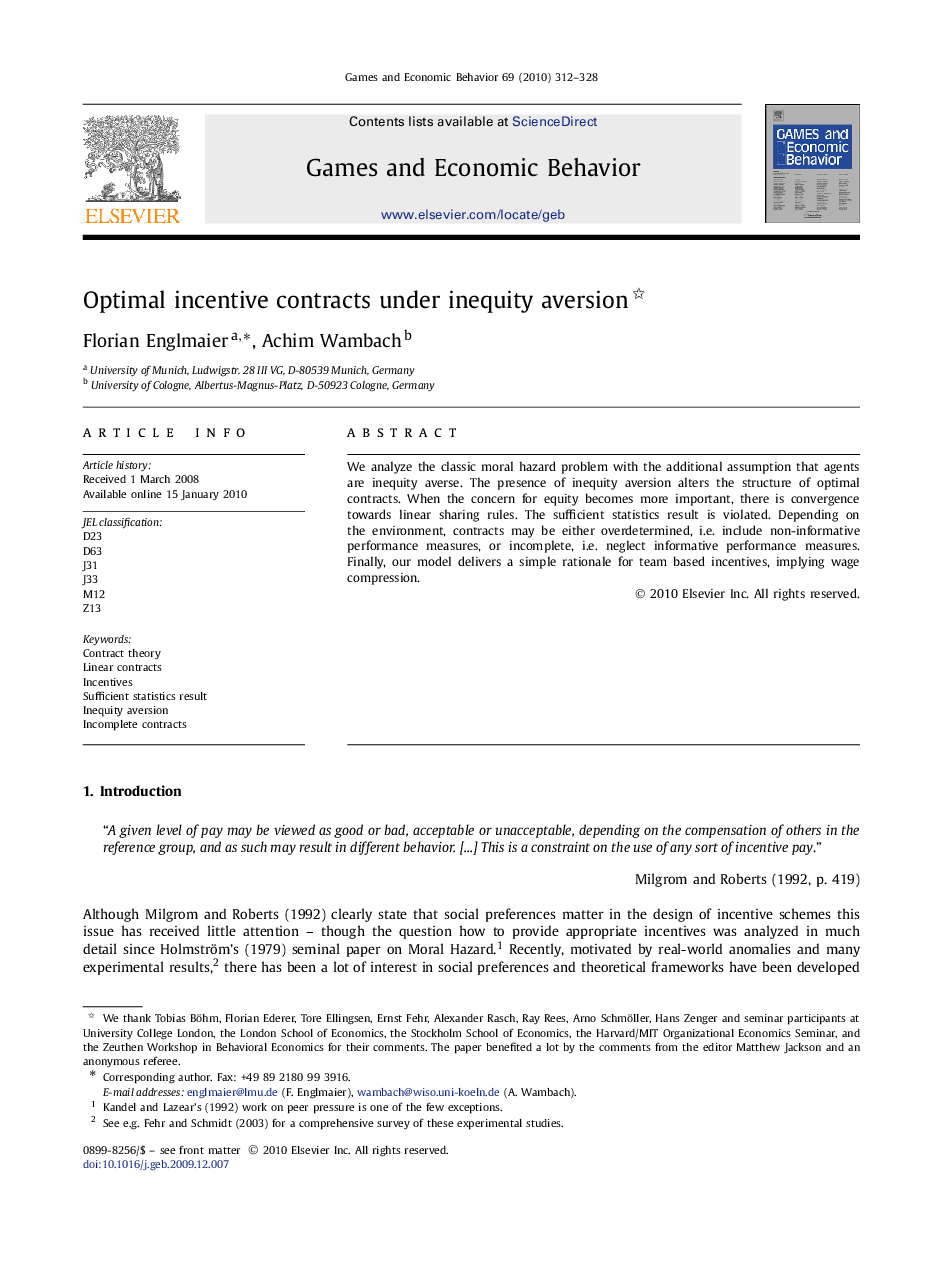| Article ID | Journal | Published Year | Pages | File Type |
|---|---|---|---|---|
| 5072417 | Games and Economic Behavior | 2010 | 17 Pages |
Abstract
We analyze the classic moral hazard problem with the additional assumption that agents are inequity averse. The presence of inequity aversion alters the structure of optimal contracts. When the concern for equity becomes more important, there is convergence towards linear sharing rules. The sufficient statistics result is violated. Depending on the environment, contracts may be either overdetermined, i.e. include non-informative performance measures, or incomplete, i.e. neglect informative performance measures. Finally, our model delivers a simple rationale for team based incentives, implying wage compression.
Related Topics
Social Sciences and Humanities
Economics, Econometrics and Finance
Economics and Econometrics
Authors
Florian Englmaier, Achim Wambach,
